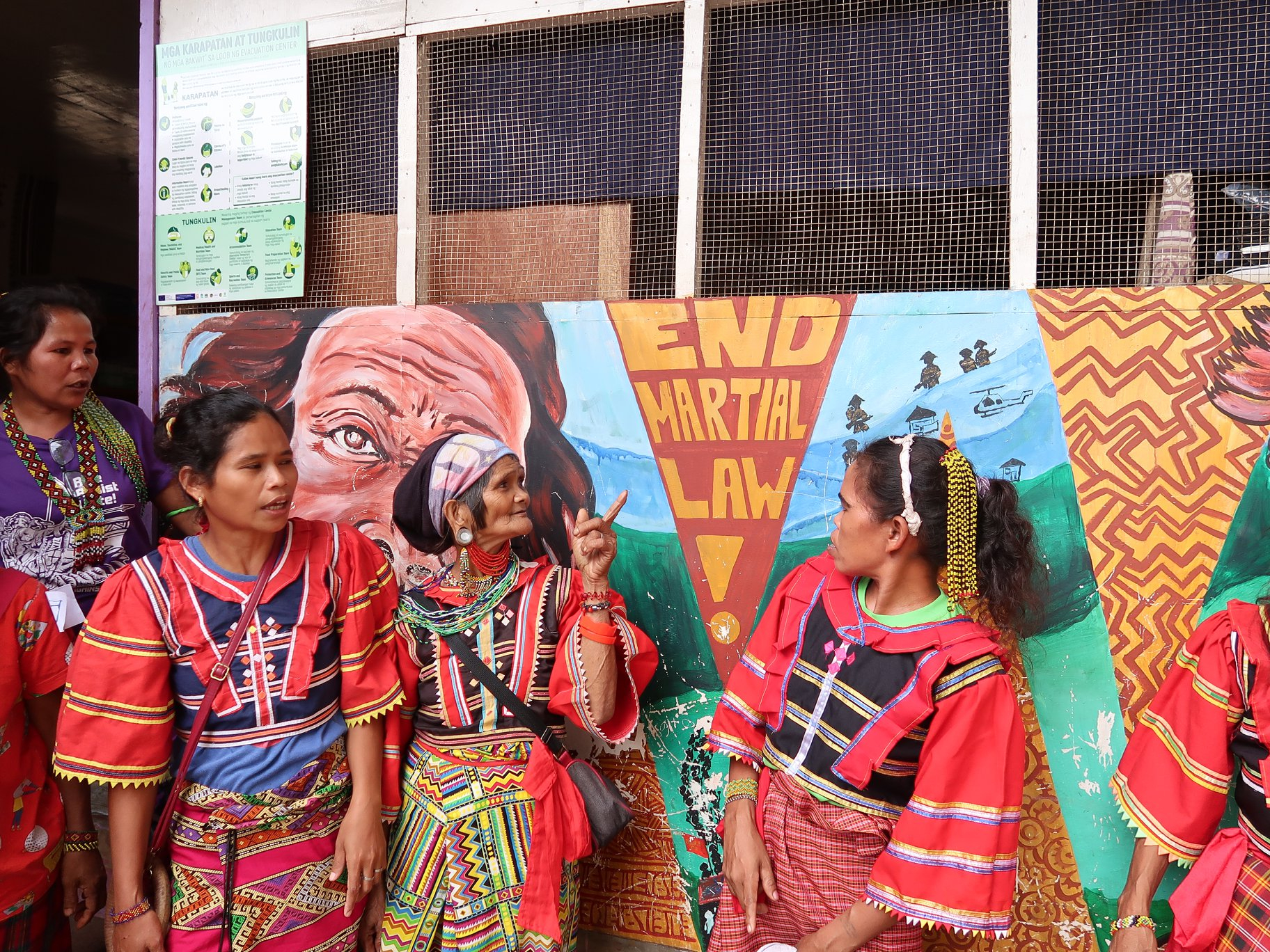Of the millions of people displaced annually due to the climate crisis, 80 per cent are women. This astonishing figure is from a United Nations Development Program policy brief aimed at ringing alarm bells on the gender-specific impacts of the climate emergency.
I raise this during the annual international 16 Days of Activism Against Gender-Based Violence campaign that runs from Nov. 25 to Dec. 10, when women and allies are sounding a collective alarm worldwide about chronic human right violations against women.
The 16 Days campaign comes on the heels of 13 days of climate negotiations in Glasgow, where women were a small minority at the negotiating table. This is no surprise. Perpetually, women are excluded from decision-making processes on issues that impact them the most.
Women were very much present and vocal at last month’s COP26 conference — outside the formal negotiations. Their voices rang out in the streets. This was no easy feat. The financial burden of getting there was formidable, especially for Indigenous women who interact with and use natural resources and ecosystems daily. For them, the climate emergency is very real, requiring immediate action.
Judging from COP26’s disappointing outcomes, this sense of urgency was missing at the male-dominated inner sanctum.
Indigenous women land defenders are the first to tell us the climate crisis is an assault against women, just as it is an assault against Mother Earth. They are the ones defending land and water against extractive projects that either fuel global heating or claim to solve it.
“The abuse is not just against the land,” said the late Gloria Chicaiza of Acción Ecológica in Ecuador, a KAIROS partner. “These two things are linked for us: the exploitation of land and the exploitation of women’s bodies.”
Whether for fossil fuels or precious metals needed for electric vehicles, these projects often lead to sexual and domestic violence, and damaged ecosystems that harm women and communities reliant on them for their well-being.
The extractive economy pays scant regard to people most impacted by it and by the consequent climate emergency.
Globally, KAIROS’ women-led partner organizations tell us of disrupted rainfall patterns causing either drought, which forces women further afield to find water, making them more prone to violence, or flooding, which displaces communities and destroys precious crops.
Climate change impoverishes communities, leading to increases in domestic violence and forcing many to migrate domestically or abroad, making them even more vulnerable to abuse. Girls and women in destitute households are less likely to receive education and more likely to be forced into early marriages.
The gender-specific impacts of the climate crisis are recognized by the international community and Canada, at least in theory. The United Nations’ fifth Sustainable Development Goal aims to achieve gender equality and empower all women and girls. COP26 included a Gender Day where women leaders flagged the dearth in overseas development targeted at gender equity.
Canada has a Feminist International Assistance Policy, which has been underfunded. Canada promised that by this fiscal year, it would increase its gender equality efforts and invest no less than 95 per cent of bilateral international development assistance to achieve these goals.
Such policy is effective — if well-funded. Women feel the effects of climate change acutely and offer vital mitigation and adaptation solutions. They are often the ones leading the charge on community-based regenerative farming and tree planting, critical in sequestering carbon and restoring resilient local ecologies.
Women are also the glue that binds families and communities. They are at the heart of building back better.
While the Canadian government is wise in developing feminist policies, including a feminist foreign policy, to tackle the complex and intersecting issues of poverty, conflict and the climate crisis, these policies are significantly compromised by Canada’s diplomatic and financial support for the profit-driven extractive economy, which violates ecosystems and women.
To be truly feminist, Canada must fully consult women — particularly land and water defenders — to lay the groundwork for community-driven and inclusive clean energy economies, and must fully invest in these efforts. Extractive companies — two thirds of which are headquartered in Canada — must be made fully accountable for their actions.
During these 16 Days of Activism Against Gender-Based Violence, let us not forget that ecosystems and women’s bodies are intrinsically linked.
Jane Thirikwa is the global partnerships co-ordinator at KAIROS Canada. She has extensive expertise and experience in social justice work, including gender equality and women’s empowerment, women’s human rights, advocacy and fundraising for grassroots organizations.
It is no surprise that the
It is no surprise that the destruction of planetary norms impacts women. What is surprising is that this opinion piece puts industry in the spotlight while not even mentioning a core underlying cause - the historic patriarchy or most religion.
I say thanks too. Religion
I say thanks too. Religion consistently gets a pass despite the disproportionate number of believers on the political right, from whence comes the most egregious ideas about everything important, starting with women. Every religion seems to have control of them as the dominant executive function of the doctrine, further proof that religion is just another set of MAN-made ideas, albeit the worst ones ever.






Comments